The Blackstone griddle is a versatile cooking surface that can be used for frying and grilling. It’s relatively cheap and if you take care of it, it’s simple and easy to use. If you like spending time outside, you actually need it. This post will show you how to clean a Blackstone griddle.
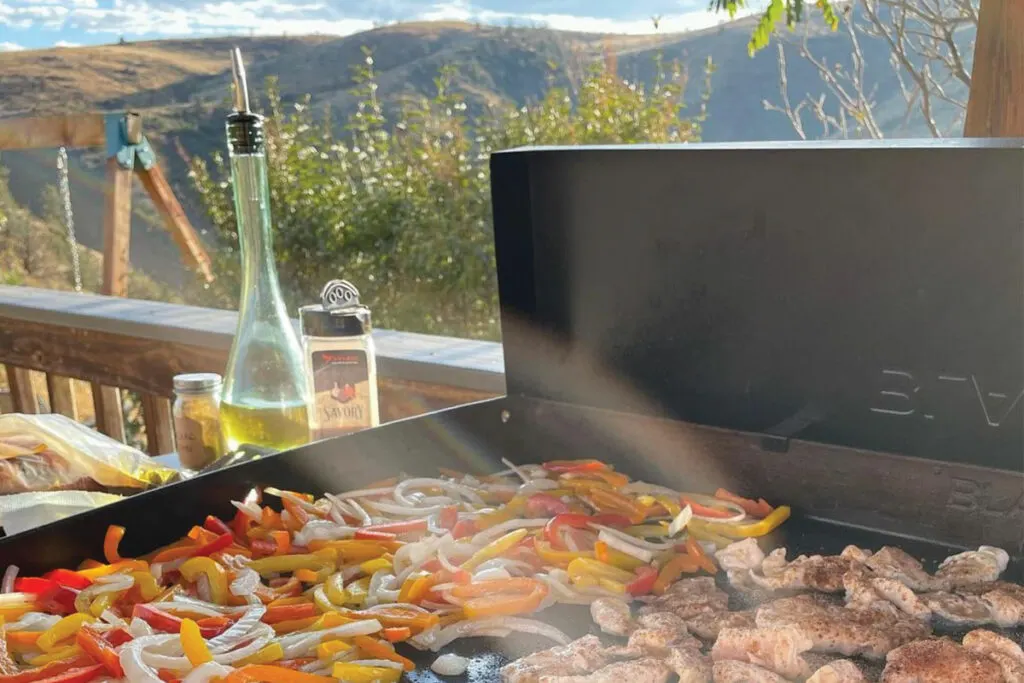
Why is the Blackstone Griddle so Popular?
The Blackstone is popular for two reasons: versatility and ease of use. If you like Hibachi style foods or meat (like me) you can be up and running (in a sophisticated way) in minutes and you don’t really need any special tools or preparation. Other than… cleaning it after use and prepping it for next time (let’s see what that looks like) –
Items Needed to Properly Clean Your Blackstone Griddle
To properly clean your Blackstone Griddle you’ll need:
- Cleaning Spray (for exterior)
- Water
- Scraper w/Sponge & Stone
- Paper Towels
- Sponge
- Oil
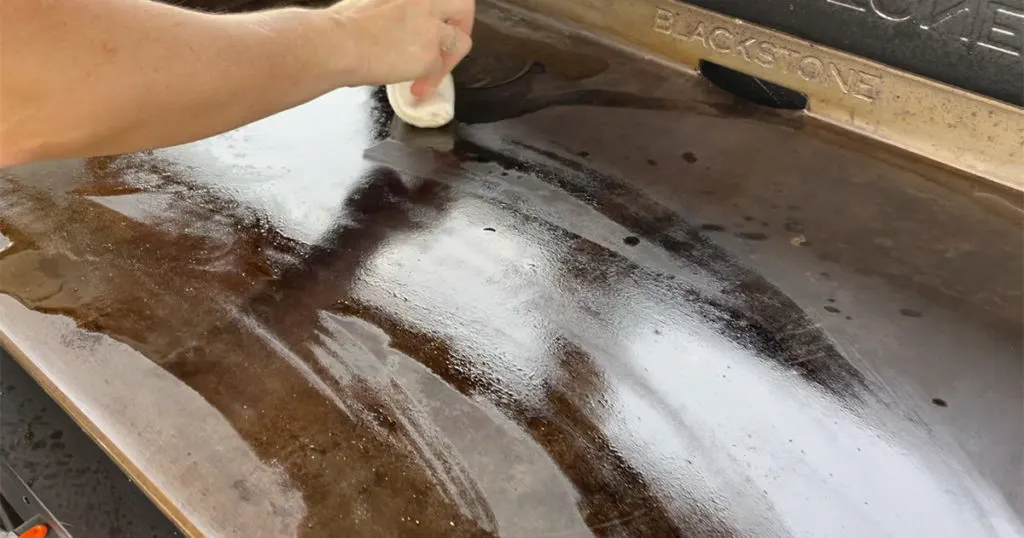
After an intense griddle session, the griddle will be dirty. All that former food and crust needs to be removed and the griddle needs to be cleaned and prepped for next time. Good news is, it’s super easy. AND it’s easier if you do it right after you use it. However, I get it… you want to eat so don’t worry, still not a big deal.
How to Clean a Blackstone Griddle
Let’s get into the details on how to properly clean and season your Blackstone Griddle.
Light up your griddle (get it hot)
You want to get the Blackstone griddle hot so you can pry away the last meal. If you don’t do this, you’ll be making much more work than needed. Go hot on every burner.
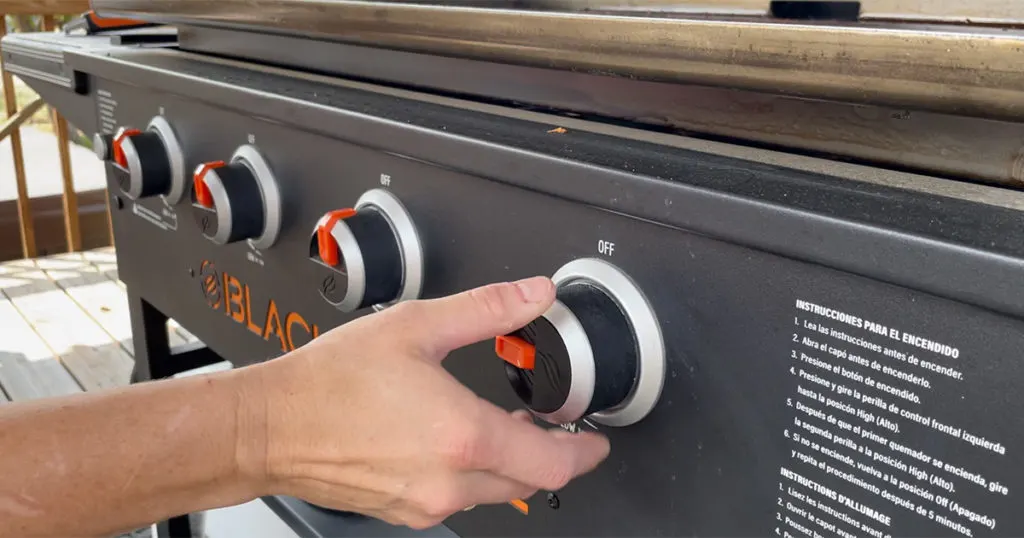
Use the scraper and scrape the crust
We purchased this scraper (picture below), it’s great. Not only does it have the flat end to scrape, it also has a replaceable sponge and stone.
Scrapper Sponge
The sponge is great for cleaning off extra dirty water.
Scrapper Stone
The stone is great for resurfacing after a lot of use.
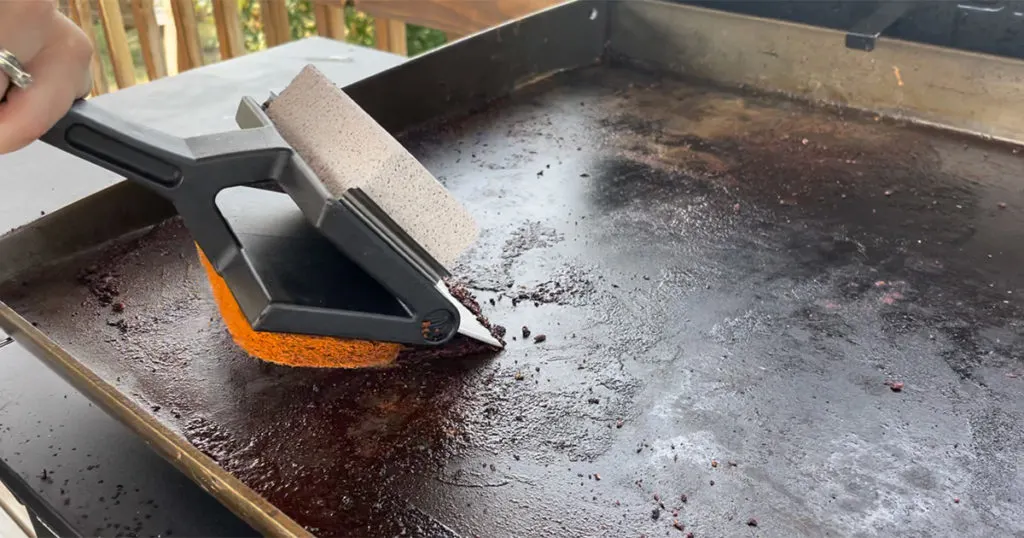
While hot – spray the griddle with water
The water helps to release more of the greasy leftovers. Ever heard of steam cleaning?
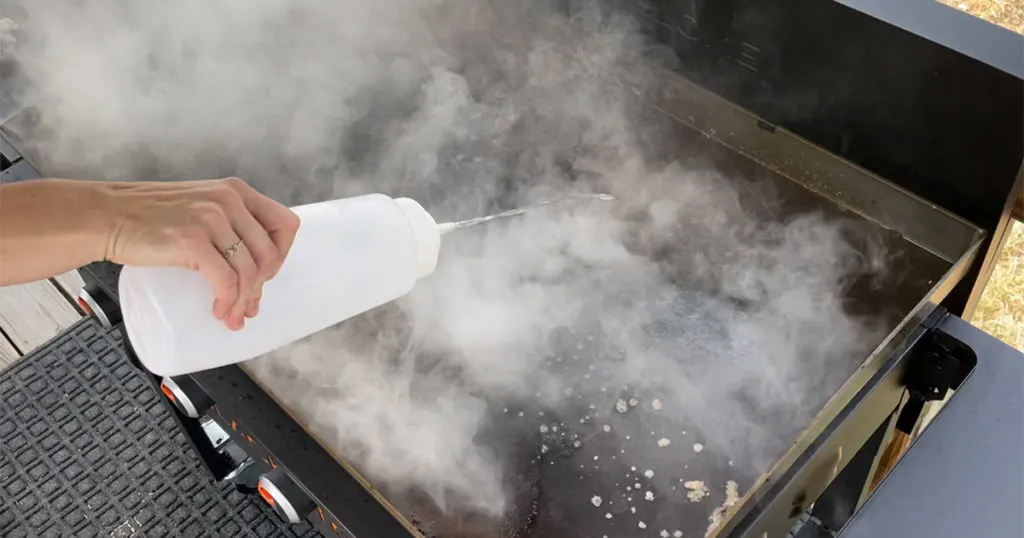
Do another pass through with the scraper
Get that final pass through to remove what you can. You’re starting to season the griddle but you don’t want to taste that burnt post meal. At this point, you’re only a few minutes in. Easy!
Oil the griddle
Turn off the heat and season the griddle for your next use. We keep a bottle of Avocado Oil at our pavilion/camper. You MUST use an oil with a high smoke point, you don’t want the oil to burn. The oil helps season the griddle and then when you’re making your next meal, even more oil. This helps to keep the food from sticking to the griddle.
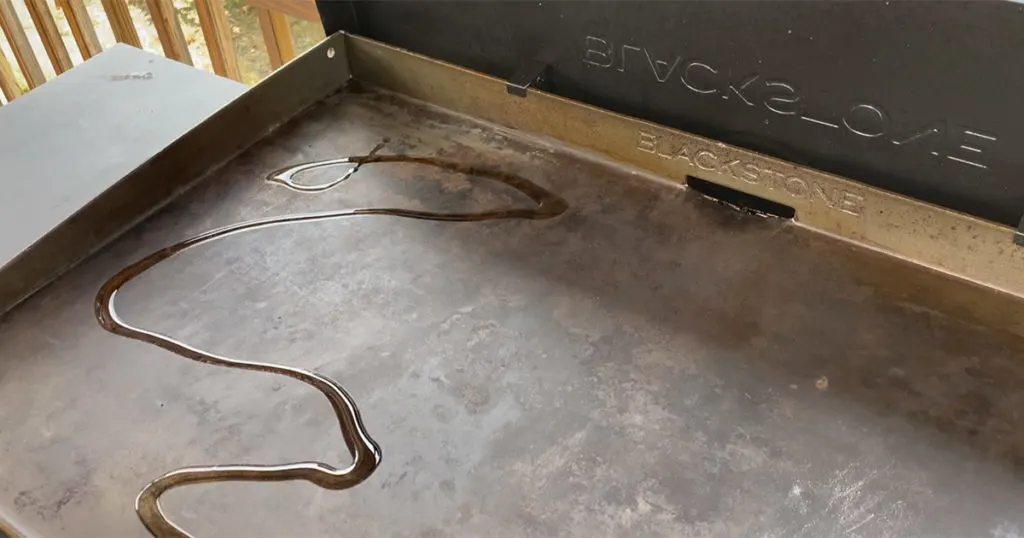
When you oil the griddle after cleaning it, you’re helping to protect it. Properly maintaining your Blackstone requires oil.
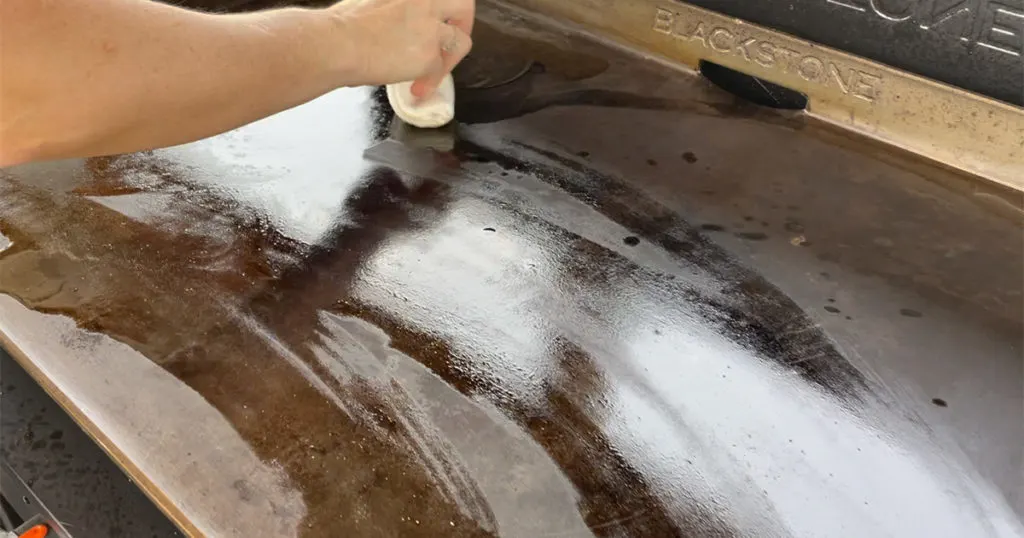
Clean all other surfaces
Now that the actual griddle is ready for next time, go through all other surfaces with your de-greasing cleaner and make sure you get it shiny. Do this to keep your Blackstone looking new and ready for food.
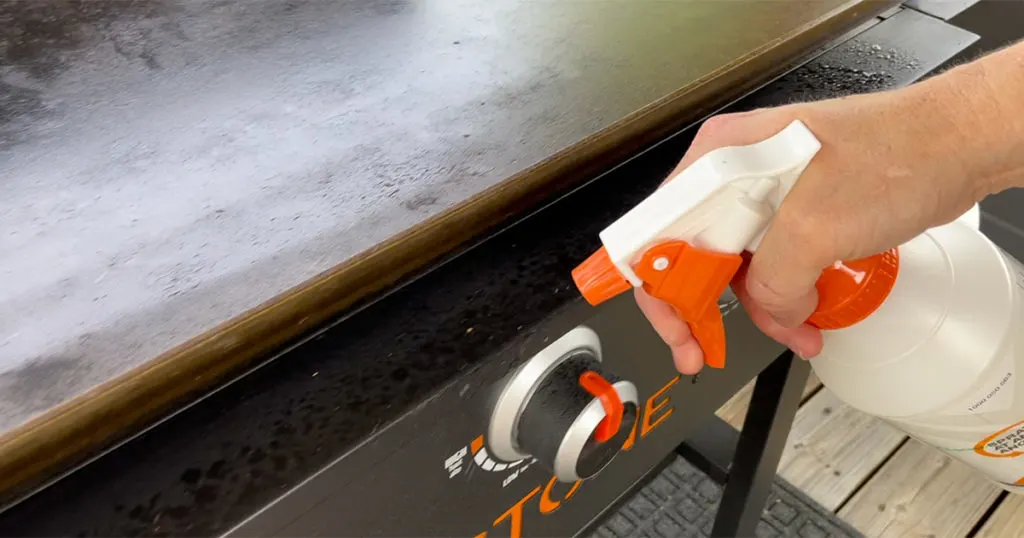
Don’t use soap when cleaning your Blackstone Griddle
There’s no need to use soap when cleaning your Blackstone Griddle. Using soap will make your food taste bad. If you use soap that removes oil, you’ll lose your seasoning. Remember: a quality clean (hot with water) and proper oil after use will help keep future flavors just right.
Blackstone Cleaning & Seasoning Questions Answered
How often should I season my Blackstone Griddle?
After each use (and after you’ve cleaned your Blackstone with heat and water) apply a high smoke point oil (like Avocado Oil) using a paper towel.
What oil do you use on a griddle?
Avocado oil has a smoke point of 520 degrees and is the perfect oil to use on your griddle. Any oil you’re comfortable consuming is okay as long as the smoke point (IMO) is over 400 degrees.
What is an oil smoke point and why does it matter?
The smoke point is the temperature at which a cooking oil starts to break down and produce smoke. The lower the smoke point, the more susceptible the oil is to breaking down at high temperatures.
Smoke point matters because it can affect how your food tastes and you want to make sure that you are using an oil that will not break down into carcinogenic molecules.
Can you use steel wool to clean off a Blackstone griddle?
You could use steel wool to clean a weathered griddle but a better option for cleaning hard to remove food residue and build up on a griddle is a griddle stone.
Can you use oven cleaner on a griddle?
No, there’s no need to use oven cleaner on a Blackstone griddle. That’s a surface you’re eating off of, never do it.
Share this on Pinterest:
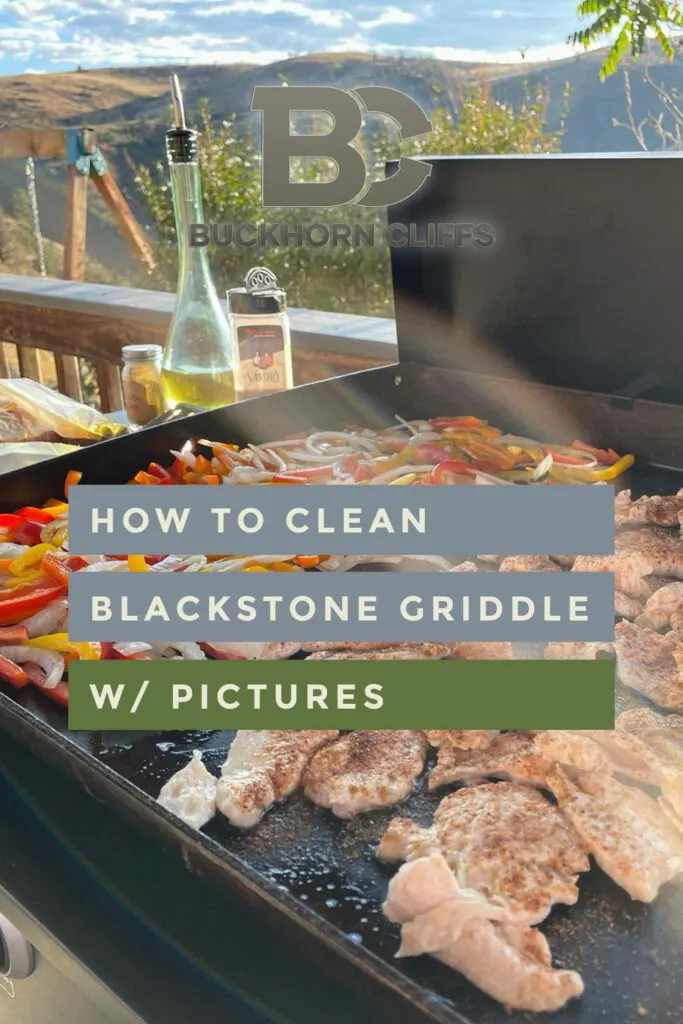
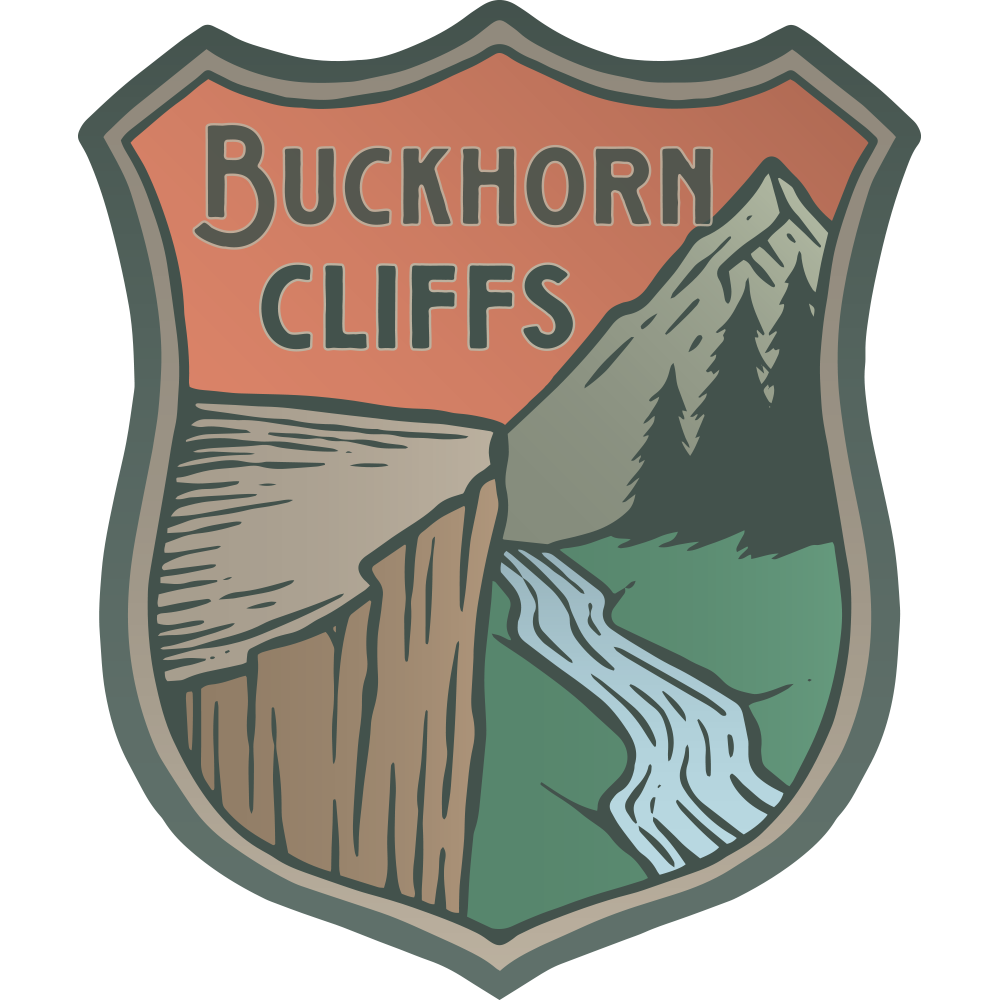
Mark
Saturday 24th of September 2022
So I bought my blackstone gridddle. Instead of using soap and water initially. I brushed off residue, then I turned on the heat to sear for 15 minutes and then began the seasoning process. Should I be concerned because I didn’t use soap and water to start?
Rob Benson
Monday 26th of September 2022
Nope, you did the right thing. The heat is the cleaning agent you need.
Becky Powers
Friday 12th of August 2022
I have a blackstone that was given to me, I was told she used oven cleaner on it, I have scrubbed and scrubbed it, and i have re-seasoned it. Is it safe to use?
Rob Benson
Saturday 13th of August 2022
Blackstone has a pumice stone that they sell so that you can do a real deep clean of the griddle top and then start from scratch to re-season. If you’ve done a deep abrasive clean like that, I’d say it’s likely safe to use.
Charlie
Tuesday 21st of June 2022
Perfectly useful
Tom
Saturday 23rd of April 2022
Scrape. Scraper.
Not scrap and scrapper LOL
Rob Benson
Sunday 29th of May 2022
haha - fixed - thank you!
Victoria J Bozard
Monday 17th of January 2022
No matter what I do or don't do, my season starts flaking. I use the griddle stone,reseason it, cook a few times then the season starts coming off. What am I doing wrong?
Kendra Benson
Monday 17th of January 2022
That could be happening due to a large number of reasons. The main culprits I can think of would be: 1) using bacon fat to season, rather than a clean oil like avocado; 2) using too much water to clean the griddle; 3) using salt and/or soap to clean the griddle; 4) not letting the griddle get hot enough before seasoning each time; 5) using too much oil to season